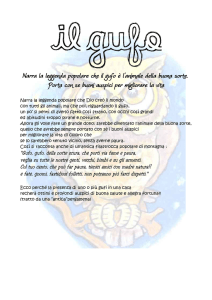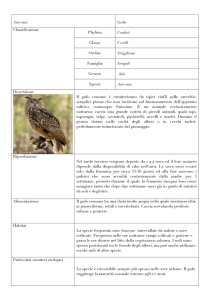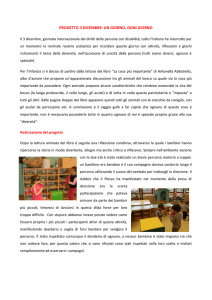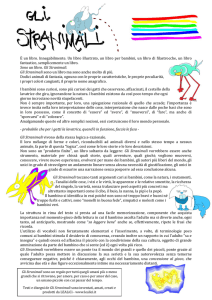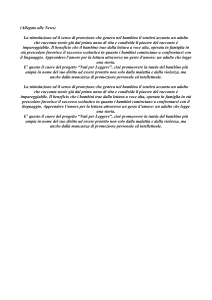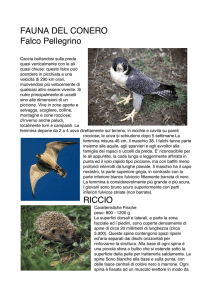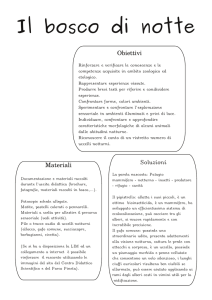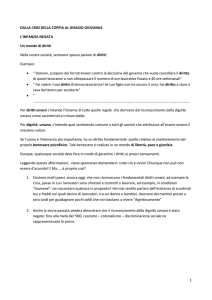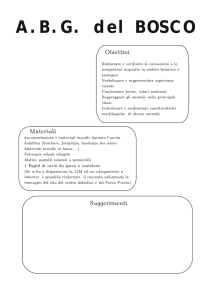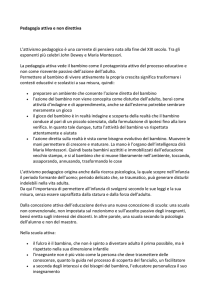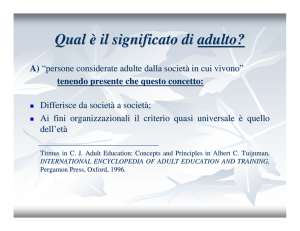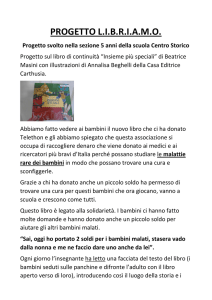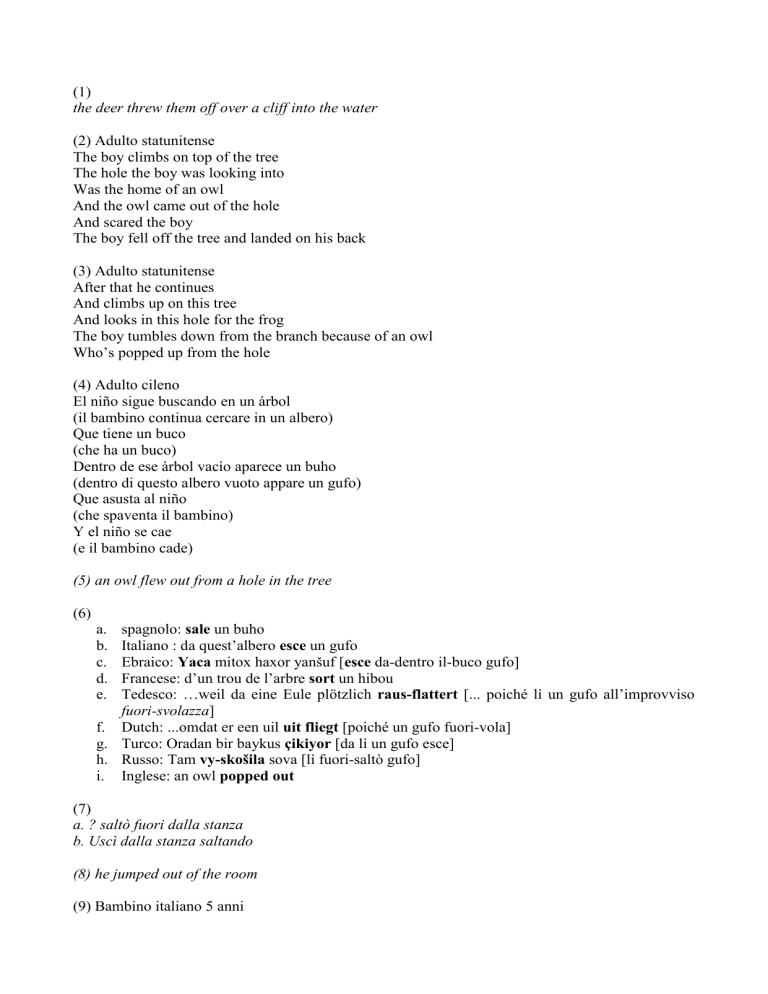
(1)
the deer threw them off over a cliff into the water
(2) Adulto statunitense
The boy climbs on top of the tree
The hole the boy was looking into
Was the home of an owl
And the owl came out of the hole
And scared the boy
The boy fell off the tree and landed on his back
(3) Adulto statunitense
After that he continues
And climbs up on this tree
And looks in this hole for the frog
The boy tumbles down from the branch because of an owl
Who’s popped up from the hole
(4) Adulto cileno
El niño sigue buscando en un árbol
(il bambino continua cercare in un albero)
Que tiene un buco
(che ha un buco)
Dentro de ese árbol vacío aparece un buho
(dentro di questo albero vuoto appare un gufo)
Que asusta al niño
(che spaventa il bambino)
Y el niño se cae
(e il bambino cade)
(5) an owl flew out from a hole in the tree
(6)
a.
b.
c.
d.
e.
spagnolo: sale un buho
Italiano : da quest’albero esce un gufo
Ebraico: Yaca mitox haxor yanšuf [esce da-dentro il-buco gufo]
Francese: d’un trou de l’arbre sort un hibou
Tedesco: …weil da eine Eule plötzlich raus-flattert [... poiché lì un gufo all’improvviso
fuori-svolazza]
f. Dutch: ...omdat er een uil uit fliegt [poiché un gufo fuori-vola]
g. Turco: Oradan bir baykus çikiyor [da lì un gufo esce]
h. Russo: Tam vy-skošila sova [lì fuori-saltò gufo]
i. Inglese: an owl popped out
(7)
a. ? saltò fuori dalla stanza
b. Uscì dalla stanza saltando
(8) he jumped out of the room
(9) Bambino italiano 5 anni
il gufo volò
(10) Adulto israelita
yanšuf kofec meha’ec
(gufo salta dall-albero)
(11) it flys out of the hole.
(12) pri-letet = come-fly
(13) vy-letet = out-fly
(14) fei1 chu1
(fly exit)
(15) fei1 chu1 lai2
(fly exit toward-speaker)
(16) Inglese
Fido very very quietly slunk/sneaked out of the water
(17) Italiano
Il cane sgusciò fuori dall’acqua
(18) Tzeltal
Xpejkunaj xben hilel
(egli [il cane] sembra come sta accovacciandosi camminando)
(19) Inglese (adulto)
Splash! They both fall into the water
(20) Spagnolo (adulto)
¡Zas! Se cayeron al suelo
(21) the frog escaped
(22) the frog exited the jar, passed through the window, and entered the woods
(23) Adulto australiano
they decided to walk outside the house down to the back of the garden out into into the bit of forest
there
(24) Adulto Tedesco
Plötzlich fällt der Hund aus dem Fenster von dem Fenstebrett herunter
(all’improvviso cade il cane fuori della finestra giù da lì dal davanzale delle finestra)
(25) Russo adulto
Iz-za kamnja olen’ vy-skočil
(da-dietro [una] roccia [un] daino fuori-saltò)
(26) eta zas! Sagu kanp-ora
(E zas! Topo fuori-allativo = e improvvisamente viene fuori un topo)
(27) ya k’an mook bel sk’ok tal i ala tz’i’i
(the little dog want to go up awaywards to pick it [beehive] towards him)
(28) Adulto australiano
they decided to walk outside the house down to the back of the garden out into into the bit of forest
there
(29)
Il bambino abitava in una foresta con un giardino intorno e al di là del giardino si intravedeva una
foresta
(30) Svedese
Poijken ramla ner
(the boy fell down)
(31) Islandese
Og svo datt hundurinn og strákurinn ofani sjó
(e poi cadde il cane e il bambino sopra.in mare-ACC)
Slobin
a. lingue verb-framed: la costruzione tipica per esprimere eventi di movimento è data da:
PATH VERB + SUBORDINATE MANNER VERB (lingue romanze, semitiche, turco,
basco, giapponese, coreano);
b. lingue equipollently-framed: in cui path e manner sono espressi da forme grammaticali
equivalenti:
MANNER VERB+ PATH VERB (lingue cino-tibetane; Niger-Congo ecc.)
[MANNER + PATH] verb: lingue on verbi bipartiti (Hokan ecc.)
MANNER PREVERB + PATH PREVERB + VERB (lingue Jaminjungan: Australia)
c. lingue satellite-framed: il mezzo preferito per esprimere la traiettoria è un elemento
associato ad un verbo: MANNER VERB + PATH SATELLITE (lingue germaniche, slave
ecc.).

